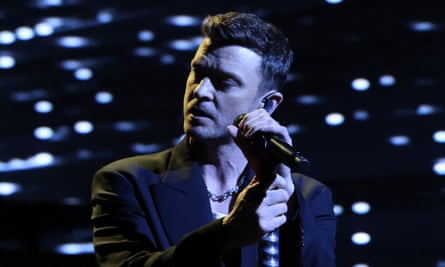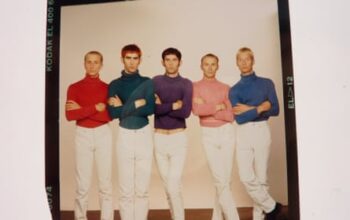O
Over 20 years since its inception, Apple’s digital music store has unexpectedly become a battleground for online conflicts. In the previous week, at least five songs climbed to the top of the Apple Music (previously known as iTunes) download charts, fueled by various internet factions. Fans of Nicki Minaj and Megan Thee Stallion battled against each other as pawns in the rappers’ ongoing feud, while supporters of Britney Spears purchased her older songs Liar and Selfish in large quantities as a means of mocking her ex-boyfriend Justin Timberlake, who had recently released a song with the same title. Additionally, conservative media influencer Ben Shapiro urged his followers to boost the popularity of his new rap track “Facts” with former Canadian wrestler Tom MacDonald. Rather than being an accurate reflection of public appeal, the chart showcased personal biases, long-standing conflicts, and plain spitefulness.
It is not uncommon for fans to come together and boost specific albums or songs on the Apple Music download charts. For instance, in 2018, a group of Mariah Carey fans purchased large quantities of her 2001 album Glitter in a campaign known as #JusticeForGlitter. However, musician and writer Jaime Brooks explains that the decline of the digital download market has made it easier for smaller and less coordinated campaigns to have a disproportionate impact on the charts. Brooks believes that the majority of people no longer use their phones or iTunes to listen to downloaded files, except for those who have not updated their technology since 2012. This trend of downloading is more of a performative act and often arises as a result of a cultural or factional battle, fueled by someone with enough resources and motivation to make a mark on the charts.
Many of these sales campaigns carry a political message, whether it is implied or explicitly stated. Shapiro’s song is a deliberate attempt to provoke the opposing political party. Fans of Spears use their trolling of Timberlake as retribution for how they believe he mistreated her during their relationship and for his uncompromising attitude since then. Megan references Megan’s Law in her song, which is a law that requires the government to make information about sex offenders public. This was seen by many as a dig at Minaj, whose husband is a registered sex offender. Minaj’s song accuses Megan of falsely accusing Tory Lanez of shooting her.
Last year, there were two major campaigns led by the American conservative establishment that overshadowed relatively niche buying campaigns. In July, Jason Aldean’s song “Try That in a Small Town” reached the top spot on the Billboard Hot 100 after its music video was removed from Country Music Television due to accusations of racism, which Aldean denied. In August, a previously unknown artist named Oliver Anthony debuted at No 1 with his libertarian and possibly QAnon-influenced song “Rich Men North of Richmond.”
According to Kristin Robinson, a senior writer for Billboard, the Aldean song was not only popular among his fans, but also gained support from those who saw it as a political statement. She mentions that influential figures on Fox News and other conservative platforms helped rally a fan base, not just in terms of music, but in terms of politics. The fact that both songs were in the country genre also contributed to their success, as country music tends to have a loyal and financially stable audience. This demographic may not be as familiar with technology, which could explain the strong sales numbers.

Sales have a disproportionate impact on the Billboard charts. One sale is equivalent to 150 streams, which is why savvy fans tend to prioritize downloads over “streaming parties” that some fan groups organize. According to Brooks, K-pop fan communities have taken the lead in educating people about the inner workings of the charts, such as how certain formats are given more weight and how a more equitable chart system could be implemented. “They have developed their own ideology around this topic and they have truly educated the larger pop fan community on how these things function,” she explains. “This has played a role in the current situation where Megan fans have come together to try and achieve high numbers in order to compete against Nicki.”
Unfortunately, many of these campaigns do not have the desired impact. While Megan’s Hiss was successful and debuted at No 1 with 100k in sales, 29.2m streams, and 2.9m radio impressions, Shapiro’s song debuted at No 16, Timberlake’s at No 19, and Minaj’s at No 23. According to Brooks, this trend is likely to continue in the future as overall music consumption decreases and popular music becomes more intertwined with celebrity and politics. Brooks explains, “Politics is starting to dominate music – in the case of the Ben Shapiro incident, it’s driven by the political media industry, and with Britney vs. Justin, it’s the celebrity industry.” She adds, “In the end, it’s all meaningless – people are competing to support the ‘good’ product versus the ‘bad’ product. But in reality, it’s all the same thing.”
Source: theguardian.com


